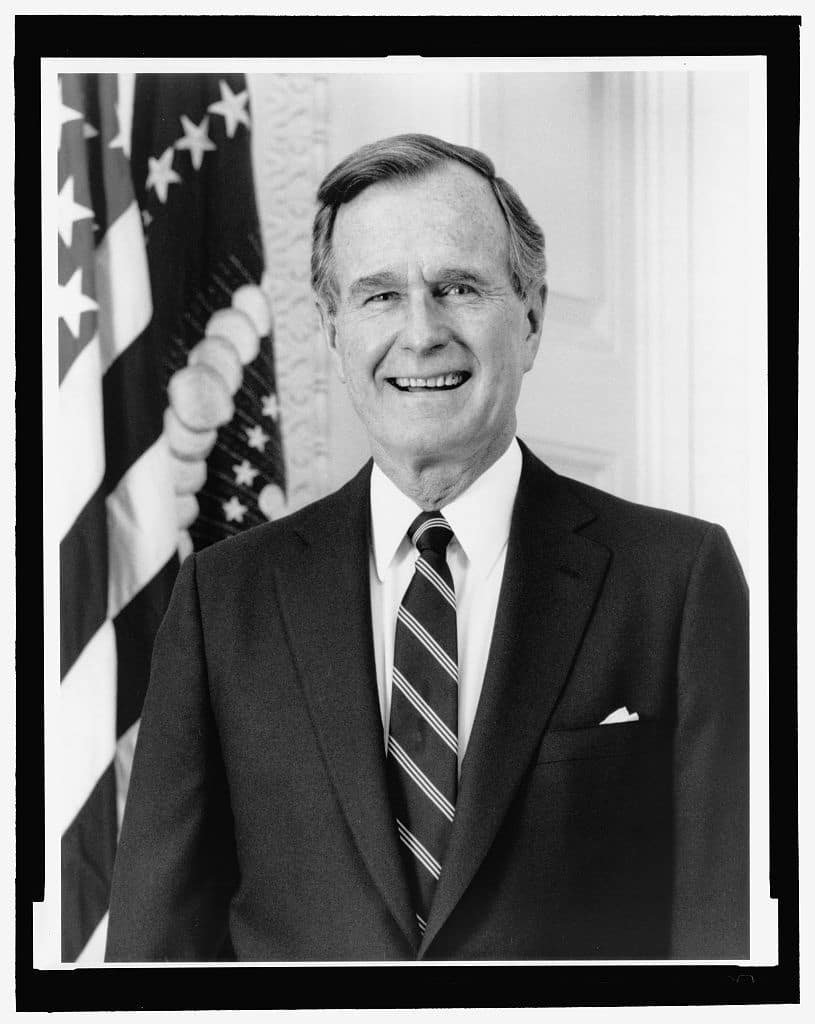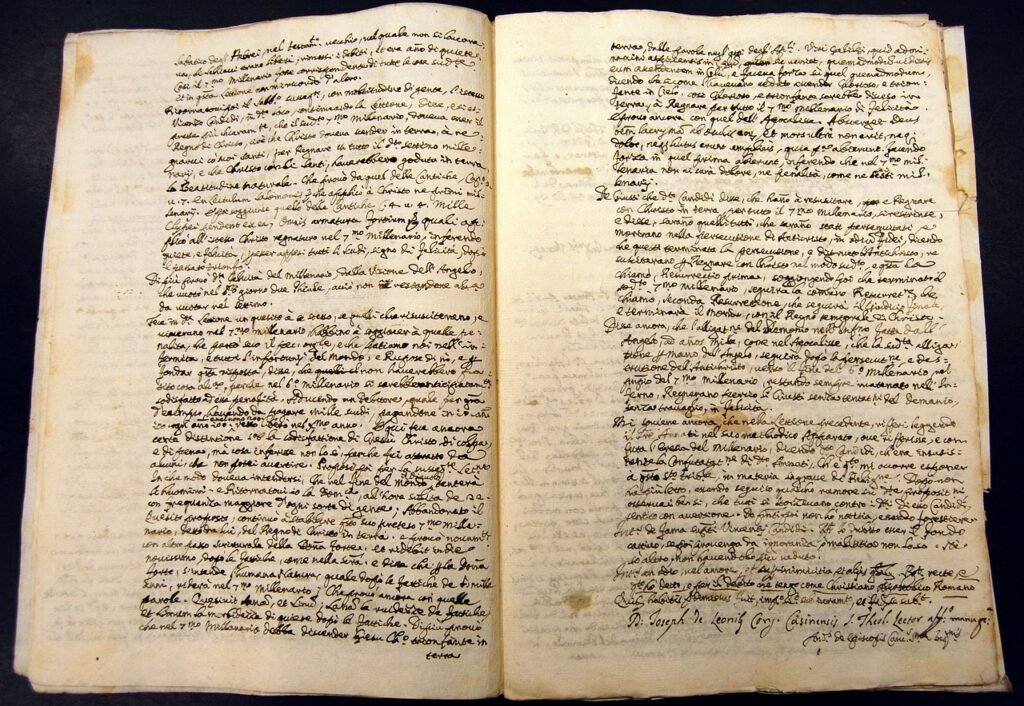




George H.W. Bush
George H.W. Bush, the 41st President of the United States, served from 1989 to 1993. Born on June 12, 1924, in Milton, Massachusetts, Bush’s life was marked by a dedication to public service, encompassing roles as a naval aviator, businessman, diplomat, and politician. His presidency was a time of significant geopolitical changes, including the end of the Cold War and the Gulf War.
Early Life and Education
George Herbert Walker Bush was born into a prominent New England family. His father, Prescott Bush, was a successful investment banker and later a U.S. Senator from Connecticut, and his mother, Dorothy Walker Bush, was active in civic and philanthropic activities. Bush grew up in Greenwich, Connecticut, where he was raised with a strong emphasis on public service and civic responsibility (Meacham, 2015).
Bush attended Phillips Academy in Andover, Massachusetts, an elite preparatory school where he excelled academically and athletically. He was president of his senior class, captain of the varsity baseball and soccer teams, and a member of the school’s community service organization. Upon graduating in 1942, Bush enlisted in the U.S. Navy on his 18th birthday, foregoing college to serve his country during World War II (Parmet, 1997).
World War II Service
As a naval aviator, Bush flew torpedo bombers off aircraft carriers in the Pacific theater. He was one of the youngest aviators in the Navy, earning his wings just days before his 19th birthday. On September 2, 1944, during a mission against Japanese installations on the island of Chichijima, Bush’s aircraft was hit by anti-aircraft fire. Despite the plane being on fire, he completed his bombing run before bailing out over the ocean. He was rescued by a U.S. submarine, but his two crewmates perished. Bush was awarded the Distinguished Flying Cross for his bravery (Greene, 2000).
Education and Early Career
After the war, Bush attended Yale University, where he graduated in 1948 with a degree in economics. At Yale, he was a member of the Skull and Bones society, captain of the baseball team, and active in student organizations. Following his graduation, Bush moved to Texas to begin a career in the oil industry, seeking to establish himself independently of his family’s wealth and influence (Meacham, 2015).
In Texas, Bush co-founded the Zapata Petroleum Corporation, an oil exploration and drilling company. His business ventures were successful, and by the late 1950s, he had become a millionaire. However, Bush’s interest in public service persisted, leading him to enter politics in the early 1960s (Parmet, 1997).
Political Career
Bush’s political career began with his election to the U.S. House of Representatives from Texas’s 7th congressional district in 1966. As a congressman, he supported civil rights legislation and environmental protection, earning a reputation as a moderate Republican. After two terms in the House, Bush ran unsuccessfully for the U.S. Senate in 1970 (Greene, 2000).
Following his Senate defeat, President Richard Nixon appointed Bush as U.S. Ambassador to the United Nations, a position he held from 1971 to 1973. Bush’s tenure at the UN was marked by efforts to improve U.S. relations with developing countries and to navigate the complexities of the Cold War. He then served as chairman of the Republican National Committee during the Watergate scandal, demonstrating loyalty to the party while advocating for ethical reforms (Meacham, 2015).
In 1974, President Gerald Ford appointed Bush as Chief of the U.S. Liaison Office in China, where he played a crucial role in strengthening U.S.-China relations. His time in China was followed by an appointment as Director of the Central Intelligence Agency (CIA) in 1976, where he worked to restore morale and integrity to the agency in the aftermath of domestic spying scandals (Parmet, 1997).
Vice Presidency
Bush’s political career reached new heights when Ronald Reagan selected him as his running mate in 1980. As Vice President, Bush played a significant role in the Reagan administration, particularly in areas of foreign policy, national security, and drug enforcement. He chaired task forces on deregulation and combating the drug crisis, demonstrating his administrative and diplomatic skills (Greene, 2000).
Bush’s eight years as Vice President were marked by loyalty to Reagan and an ability to navigate the complexities of the executive branch. His experience and connections positioned him as the logical successor to Reagan, leading to his successful bid for the presidency in 1988 (Meacham, 2015).
The Presidency: Key Policies and Events
Bush’s presidency was marked by significant global and domestic events. He assumed office at a time of dramatic geopolitical changes, most notably the end of the Cold War. Bush’s foreign policy achievements included managing the peaceful dissolution of the Soviet Union, the reunification of Germany, and the promotion of democratic reforms in Eastern Europe. His diplomatic approach, characterized by prudence and coalition-building, helped navigate these transitions smoothly (Beschloss, 2016).
One of Bush’s most significant foreign policy challenges was the Gulf War. In August 1990, Iraqi forces under Saddam Hussein invaded Kuwait, prompting Bush to build a broad international coalition to expel Iraqi troops. Operation Desert Storm, launched in January 1991, successfully liberated Kuwait with minimal coalition casualties. Bush’s leadership during the Gulf War bolstered his reputation as a decisive and effective leader (Engel, 2017).
Domestically, Bush faced economic challenges, including a recession that began in 1990. His administration’s response included the controversial decision to raise taxes, breaking his “no new taxes” pledge made during his campaign. While the tax increase was part of a broader deficit reduction agreement, it alienated many conservatives and contributed to his declining popularity (Parmet, 1997).
Bush’s presidency also saw the passage of significant legislation, including the Americans with Disabilities Act (ADA) of 1990, which prohibited discrimination based on disability, and the Clean Air Act Amendments of 1990, which aimed to reduce air pollution and acid rain. These legislative achievements reflected Bush’s commitment to civil rights and environmental protection (Greene, 2000).
Personal Life and Character
Bush married Barbara Pierce in 1945, and their marriage was a cornerstone of his personal and public life. The couple had six children, including George W. Bush, who would later become the 43rd President of the United States, and Jeb Bush, who served as Governor of Florida. Barbara Bush was a steadfast partner and an influential first lady, known for her advocacy on literacy and family issues (Meacham, 2015).
Bush’s personal values were deeply rooted in his upbringing and his experiences during World War II. His commitment to service, humility, and integrity defined his character and leadership style. Known for his handwritten notes, personal connections, and genuine kindness, Bush fostered a sense of loyalty and respect among colleagues and world leaders (Engel, 2017).
Post-Presidency and Legacy
After losing the 1992 election to Bill Clinton, Bush retired from public office but remained active in various humanitarian and diplomatic efforts. He collaborated with Clinton on disaster relief efforts, including those following the 2004 Indian Ocean tsunami and Hurricane Katrina in 2005. These bipartisan initiatives demonstrated Bush’s enduring commitment to public service and humanitarianism (Beschloss, 2016).
Bush’s post-presidential years were also marked by his involvement in educational and civic organizations. He established the George Bush Presidential Library and Museum at Texas A&M University, which serves as a center for research and public programs. His legacy is preserved through his contributions to public policy, foreign relations, and philanthropy (Engel, 2017).
Bush passed away on November 30, 2018, at the age of 94. His funeral was attended by numerous world leaders and dignitaries, reflecting the widespread respect and admiration he earned throughout his life. Bush’s legacy is multifaceted, encompassing his achievements in public service, diplomacy, and his dedication to family and country (Meacham, 2015).
Final Summary
George H.W. Bush’s life and presidency reflect a commitment to service, leadership, and integrity. From his early days as a naval aviator in World War II to his roles in government and diplomacy, Bush demonstrated a dedication to public service and a capacity for navigating complex global and domestic challenges.
Bush’s presidency was marked by significant geopolitical changes, including the end of the Cold War and the Gulf War, as well as important legislative achievements such as the ADA and the Clean Air Act Amendments. His pragmatic approach to governance and diplomacy left a lasting impact on American and world history.
Bush’s legacy is one of resilience, kindness, and a steadfast commitment to service. His contributions to public life and his enduring influence on American politics and global affairs continue to be recognized and celebrated. As a leader who embodied the values of duty, honor, and service, George H.W. Bush remains a significant figure in the history of the American presidency.
References
Beschloss, M. R. (2016). *Presidents of War: The Epic Story, from 1807 to Modern Times*. Crown.
Engel, J. A. (2017). *When the World Seemed New: George H.W. Bush and the End of the Cold War*. Houghton Mifflin Harcourt.
Greene, J. R. (2000). *The Presidency of George Bush*. University Press of Kansas.
Meacham, J. (2015). *Destiny and Power: The American Odyssey of George Herbert Walker Bush*. Random House.
Parmet, H. S. (1997). *George Bush: The Life of a Lone Star Yankee*. Scribner.
